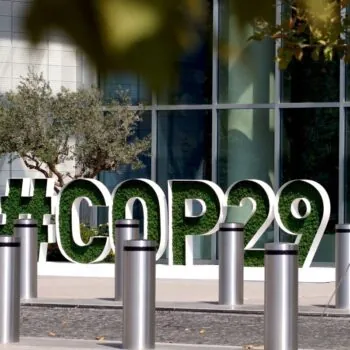The international response to the economic damage wrought by COVID-19 to date has failed to address the nature of our current crisis, which is an external shock and will be long-lasting.
In response to a crisis this unprecedented, massive and majorly disruptive across global economies, current efforts by the G20 are proving limited and incremental. The G20 strategy so far has been reactive. It is driven by debt repayment whilst ignoring the different challenges and starting positions of each country.
Even on debt, action is falling short despite the availability of many of the necessary tools. This is reflected in the recently announced “G20 Common Framework for Debt Treatments beyond the Debt Service Suspension Initiative” (the Common Framework) which makes some small positive steps but lacks the necessary ambition.
The Common Framework – which provides a step forward by attempting to bring both the private sector and Chinese state-owned banks into the framework – places significant responsibility on the IMF’s Debt Sustainability Analyses (DSA). These, however, are not currently fit to support countries in building their future economies.
DSA’s fail to make full assessments of the ability of countries to continue functioning effectively. They do not contextualise debt repayment as part of that effective functioning and prioritize whether a country can meet its debt repayments without considering if this could undermine the country’s long-term development as a functioning member of the global economy.
Furthermore, DSAs are typically agnostic toward the cause of debt distress, not differentiating between debt incurred by economic mismanagement or debt stemming from hefty infrastructure investment. In essence, DSA’s do not help countries serve their citizens nor build for the future. Instead they do a disservice to countries, and may not benefit creditors either in the longer-term.
For the global economy to build back together it is key these assessments do not prop up obsolete economies nor hamper investment in the future.
In the words of Mr Jadaan, Saudi Finance Minister, the initiative must be “a tool for structural reform”. However, the G20 has fallen short of envisaging the future that the structural reforms must deliver.
DSA’s are of course a complex subject, but countries should not be prevented from building their economies of the future by a methodology which has not kept up with the changing environment. Unfortunately, the G20 has not been able to dispel this uncertainty, and the continued weak signaling only compounds matters.
Bold Action now will benefit creditors and debtors in the long run
So far, the crisis is coming in waves, putting more pressure on limited and already strained public resources. This means snapshot assessments will miss the long-term impact. Each wave does not just add to the problem, it multiplies it, not least because waves add uncertainty as well as direct pressure.
The lack of certainty is hampering investments and pushing economies not yet suffering solvency crises closer to doing so. The G20 is right to recognise that where countries are facing solvency crisis, the focus should be on encouraging an orderly restructuring to enable a return to growth. The Common Framework is necessary but insufficient.
The G20 has yet to make meaningful progress in preventing countries with sound fundamentals from being pushed into insolvency by the crisis.
However, there are clear actions which could be taken to do so. These will evolve with the crisis. Certain measures will better fit an immediate response, while others will be good for kick-starting a recovery and resetting the economic system.
For example, a recent paper by the UN Economic Commission for Africa, ‘Building Forward Together – Financing a Sustainable Recovery for All’, highlights a menu of options with the capacity to evolve with the crisis while capturing the heterogeneity of the continent’s different countries. The paper makes it clear that immediate actions from the G20 can restore countries to sustainable growth and should not be delayed.
Market confidence needs to be restored. Immediate actions to take include;
- issuing new Special Drawing Rights by the IMF (SDRs500bn) with a reallocation to ensure developing economies receive the SDRs they need;
- lowering the borrowing costs of solvent countries through a repo-style liquidity and sustainability facility;
- and increasing concessional finance support by stretching MDBs balance sheets.
This needs to be complemented by a prompt extension of the Debt Service Suspension Initiative at least through the end of 2021, and should aim for an extension to end-2022. Following these steps would reduce uncertainty at zero cost (in net present value terms) to creditor countries.
These measures combined could restore sustainable growth for those not facing a solvency crisis. While additional support would be needed for more economically trouble nations, these measures would lay a critical foundation for greater action.
The international community should recognise the growth of every economy is dependent on renewed global growth.
The level of support needed to restore emerging and developing economies depends heavily on the confidence that the international community can give investors and financiers. Failure to do so will prove far more costly in the future, whilst ensuring developed economies lack emerging markets to trade with.


